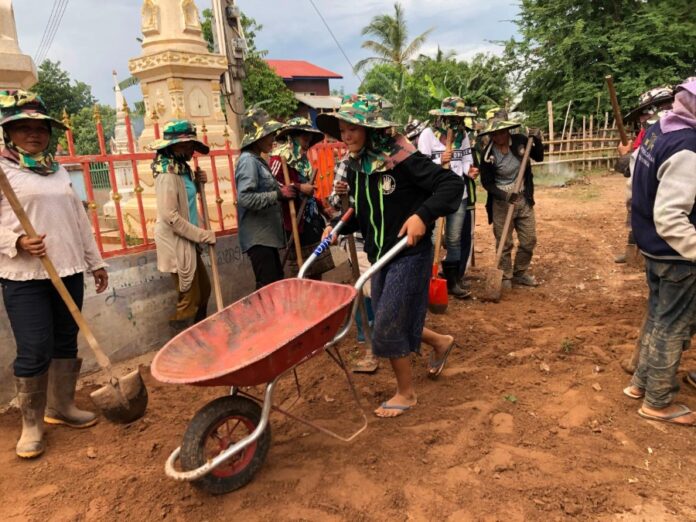A recent study by Chitondo, et al. (2024) titled “Disaster Management and Mitigation Strategies in Zambia: A Systematic Review” published in World Journal of Advanced Research and Reviews, shows that the existing disaster management framework in Zambia involves multiple institutions and stakeholders, but there are gaps in coordination and resource allocation.
“
Zambia’s disaster management framework requires improved coordination and resource allocation among multiple institutions and stakeholders.-Chitondo, et al. 2024
The study focuses on disaster management and mitigation strategies in Zambia, exploring a range of natural and human-induced disasters, including floods, droughts, disease outbreaks, and industrial accidents. It provides a detailed analysis of Zambia’s disaster management framework, shedding light on the key institutions, policies, and stakeholders that play a critical role in disaster preparedness, response, and recovery efforts. A central theme of the study is the importance of a comprehensive, multi-dimensional approach to disaster management. Effective strategies must encompass several key elements: preparedness, risk reduction, community engagement, innovation, and global cooperation. Preparedness involves the proactive identification of potential risks and the development of strategies to address them before disasters strike. Risk reduction focuses on minimizing the vulnerability of communities and infrastructure to disaster impacts. Community engagement is crucial, as local populations are often the first responders, and their involvement can enhance the effectiveness of disaster response efforts. Innovation plays a pivotal role in developing new tools and methods to predict, prevent, and respond to disasters more efficiently. Finally, global cooperation is essential, as disasters often transcend national borders, requiring coordinated efforts from multiple countries and international organizations.
How the Study was Conducted
The research employs a mixed-methods approach, combining both qualitative and quantitative analyses to provide a comprehensive understanding of the subject. Qualitative analysis involves a thorough examination of policy documents and literature, offering insights into existing frameworks and strategies. This is complemented by quantitative assessments derived from data collected through interviews, questionnaires, and project observation schedules involving 250 respondents. These methods ensure a robust and well-rounded analysis of disaster management practices in Zambia.
What the Authors Found
The authors found that effective disaster management requires a multi-dimensional strategy that includes preparedness, risk reduction, community engagement, innovation, and global cooperation. The authors posit that the existing disaster management framework in Zambia involves multiple institutions and stakeholders, but there are gaps in coordination and resource allocation.
Why is this Important
Enhanced Preparedness: By understanding the current disaster management framework and identifying gaps, the study helps improve preparedness for future disasters. This can save lives and reduce economic losses.
Policy Improvement: The findings highlight discrepancies between policy and implementation, providing a basis for policymakers to refine and enforce more effective disaster management policies.
Community Resilience: Emphasizing community involvement and capacity building ensures that local populations are better equipped to handle disasters. This fosters resilience and self-reliance.
Resource Allocation: Identifying areas where resources are lacking allows for better allocation and utilization of funds and materials, ensuring that they reach the most vulnerable populations.
Global Cooperation: The study underscores the need for international collaboration in disaster management, promoting the sharing of knowledge, technology, and resources.
What the Authors Recommended
- The authors suggest improving coordination among various institutions and stakeholders involved in disaster management to ensure a unified and efficient response.
- The authors recommend fostering greater involvement of local communities in disaster preparedness and response activities. This includes leveraging local knowledge and encouraging community-based initiatives.
- The author suggests that policymakers should invest in training and resources to build the capacity of both institutions and communities to handle disasters more effectively.
- In addition, policymakers should encourage the use of innovative technologies and practices in disaster management to improve efficiency and effectiveness.
In conclusion, the study by Chitondo et al. (2024) provides valuable insights into the strengths and shortcomings of Zambia’s disaster management framework. By highlighting the importance of a multi-dimensional approach that includes preparedness, risk reduction, community engagement, innovation, and global cooperation, the research underscores the need for enhanced coordination, resource allocation, and policy refinement. The findings offer a clear pathway for improving disaster management strategies, ensuring that Zambia is better equipped to handle future crises, protect its communities, and build long-term resilience.
















 The African Research (AR) Index is a comprehensive scholarly directory and database focused explicitly on journal publishers that publish and disseminate African research.
The African Research (AR) Index is a comprehensive scholarly directory and database focused explicitly on journal publishers that publish and disseminate African research.

